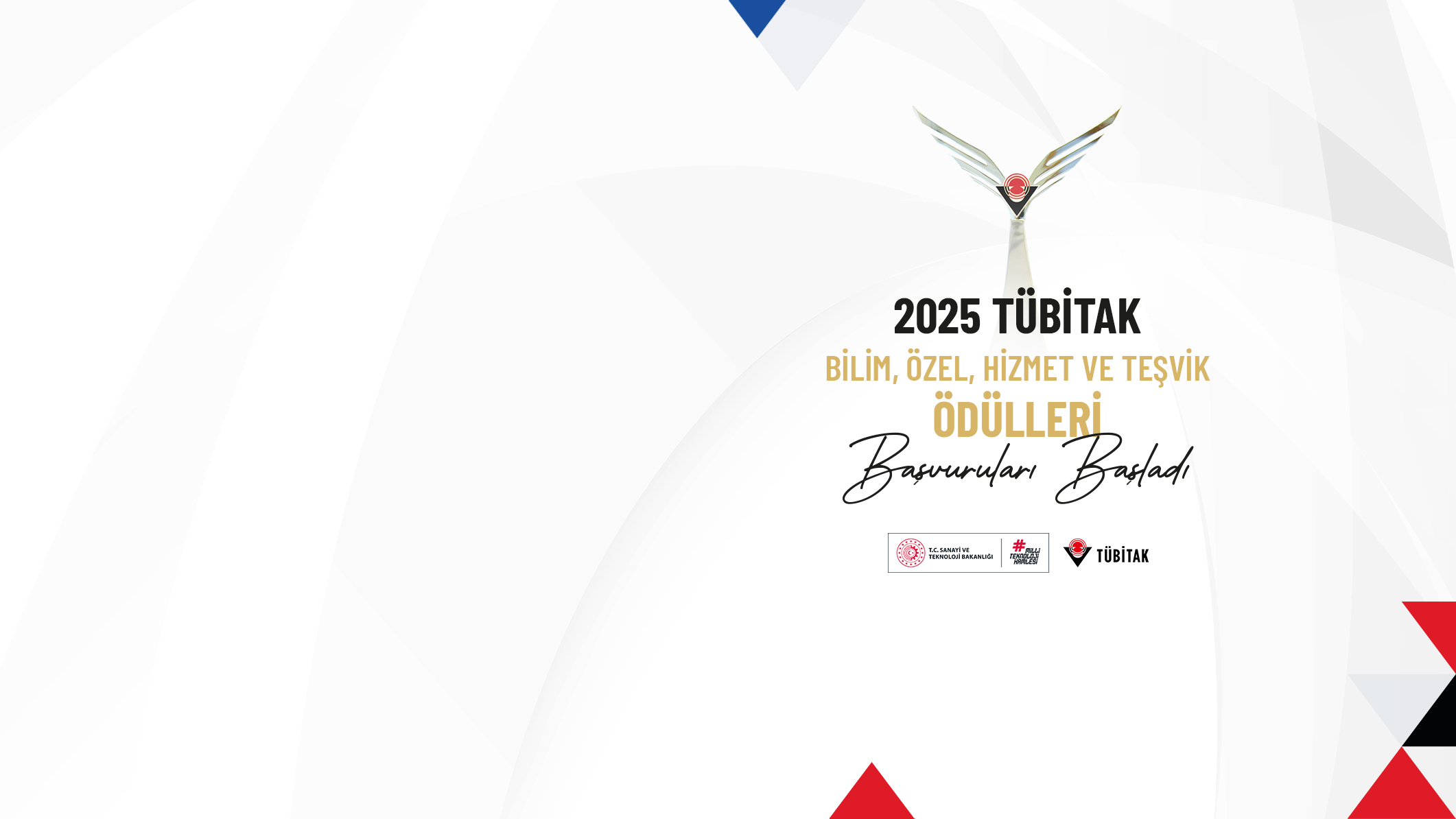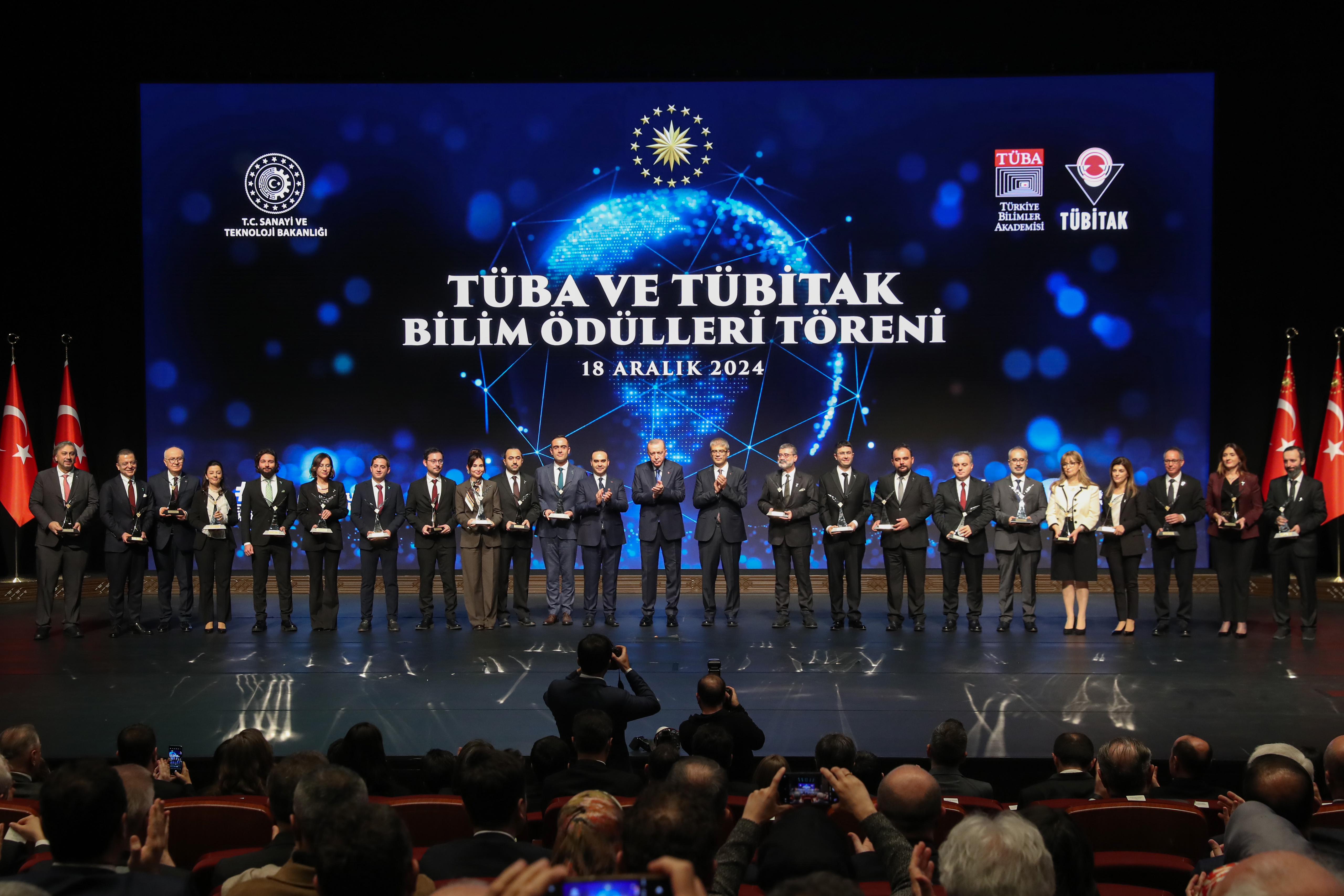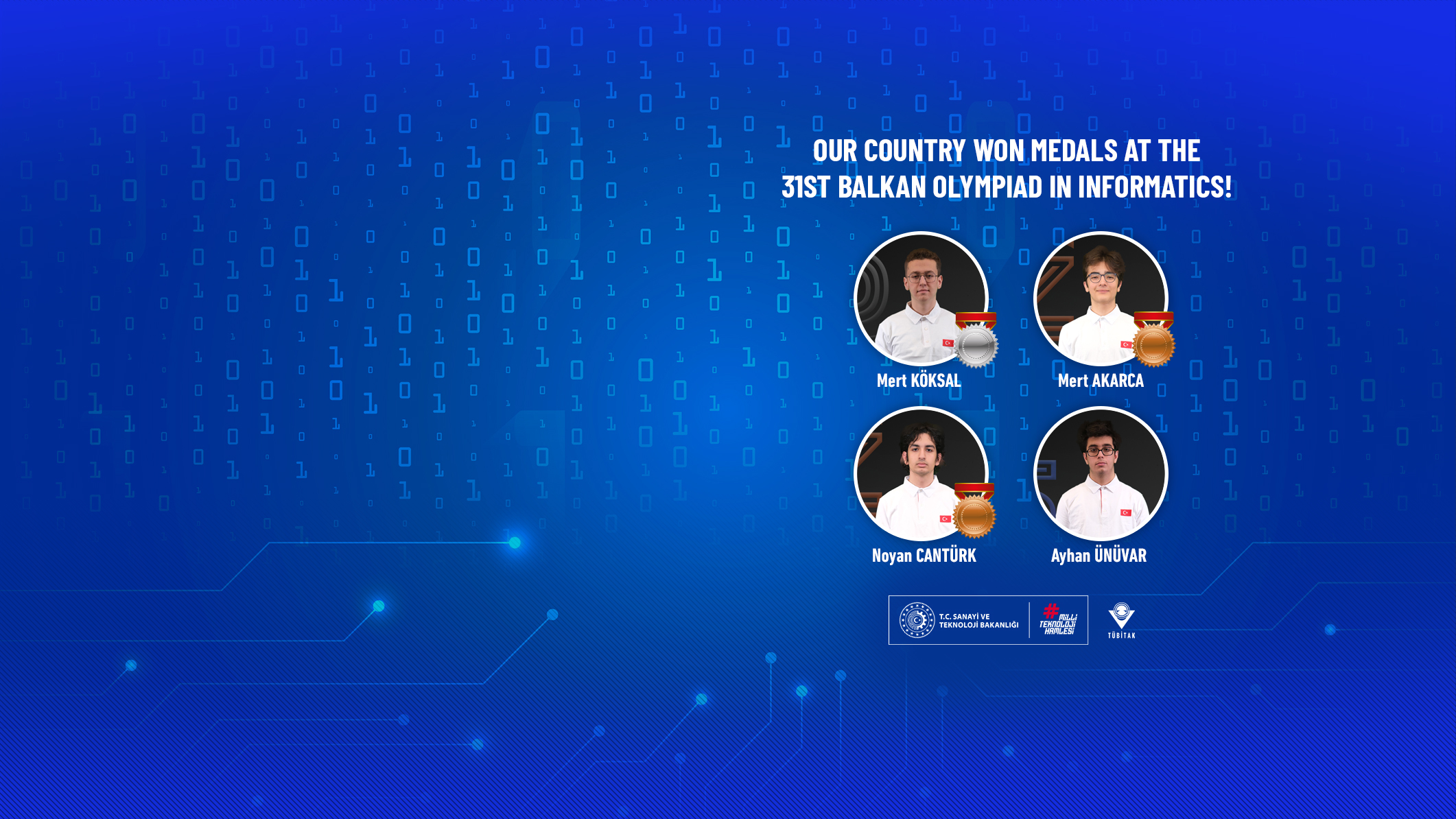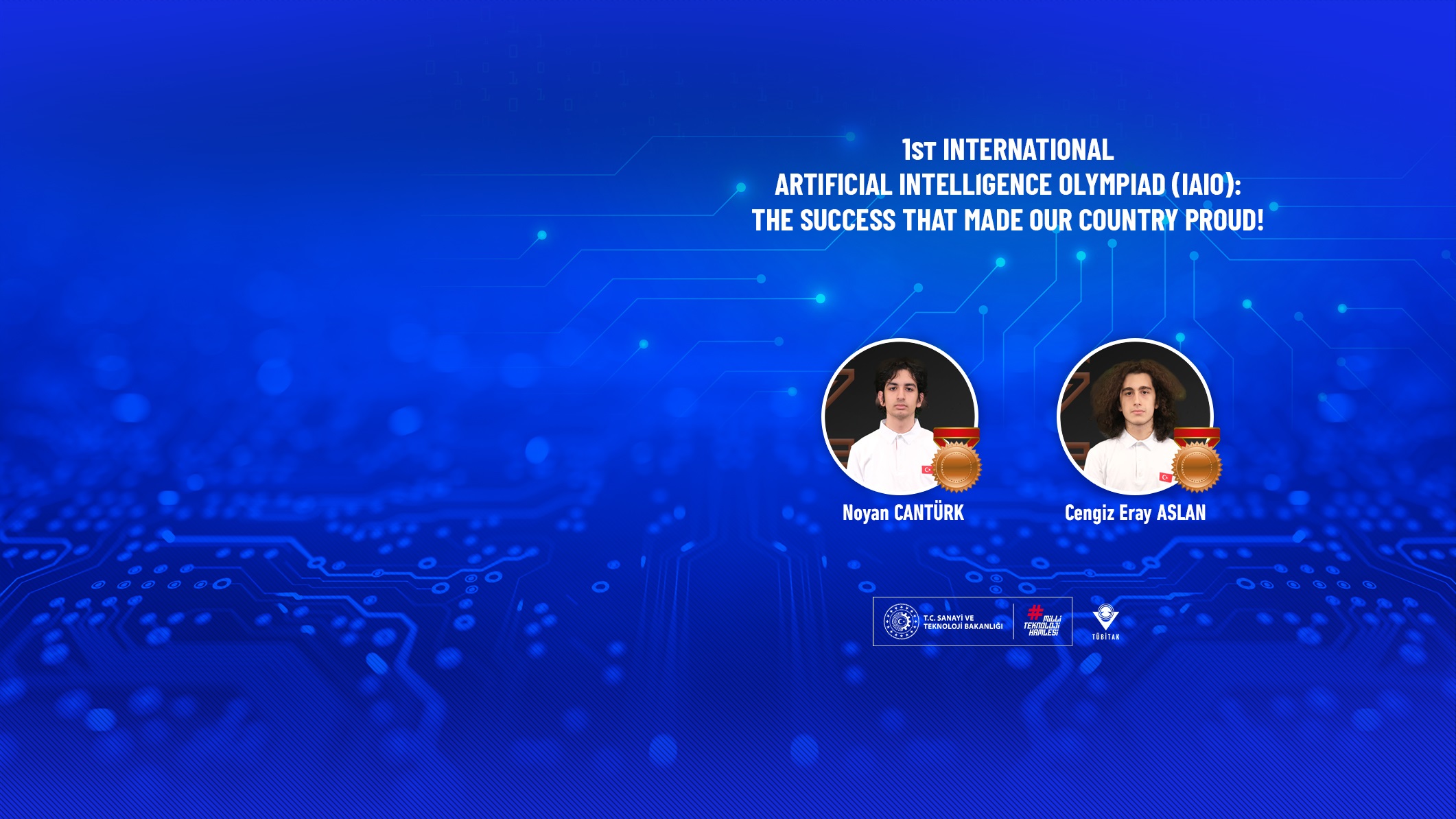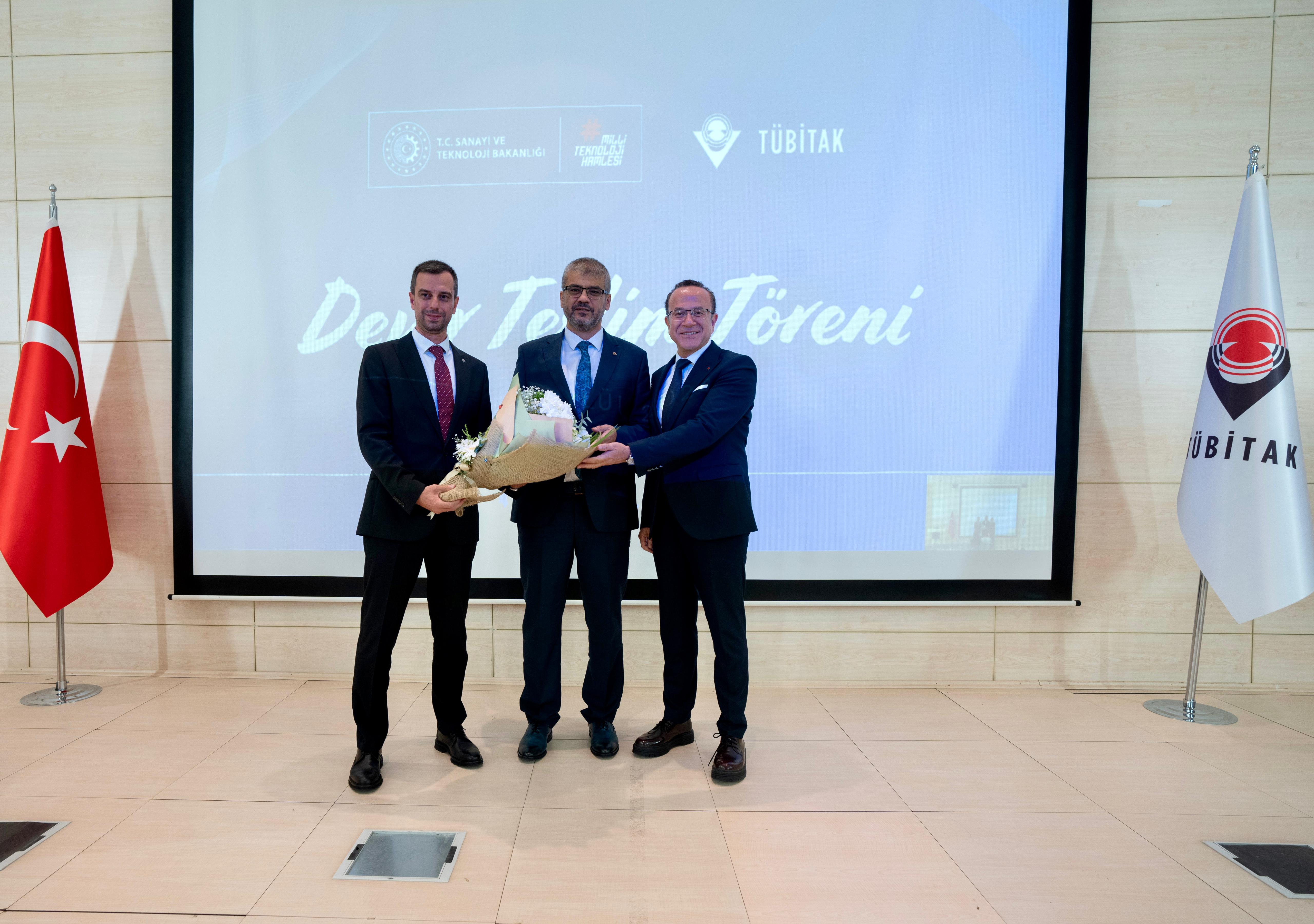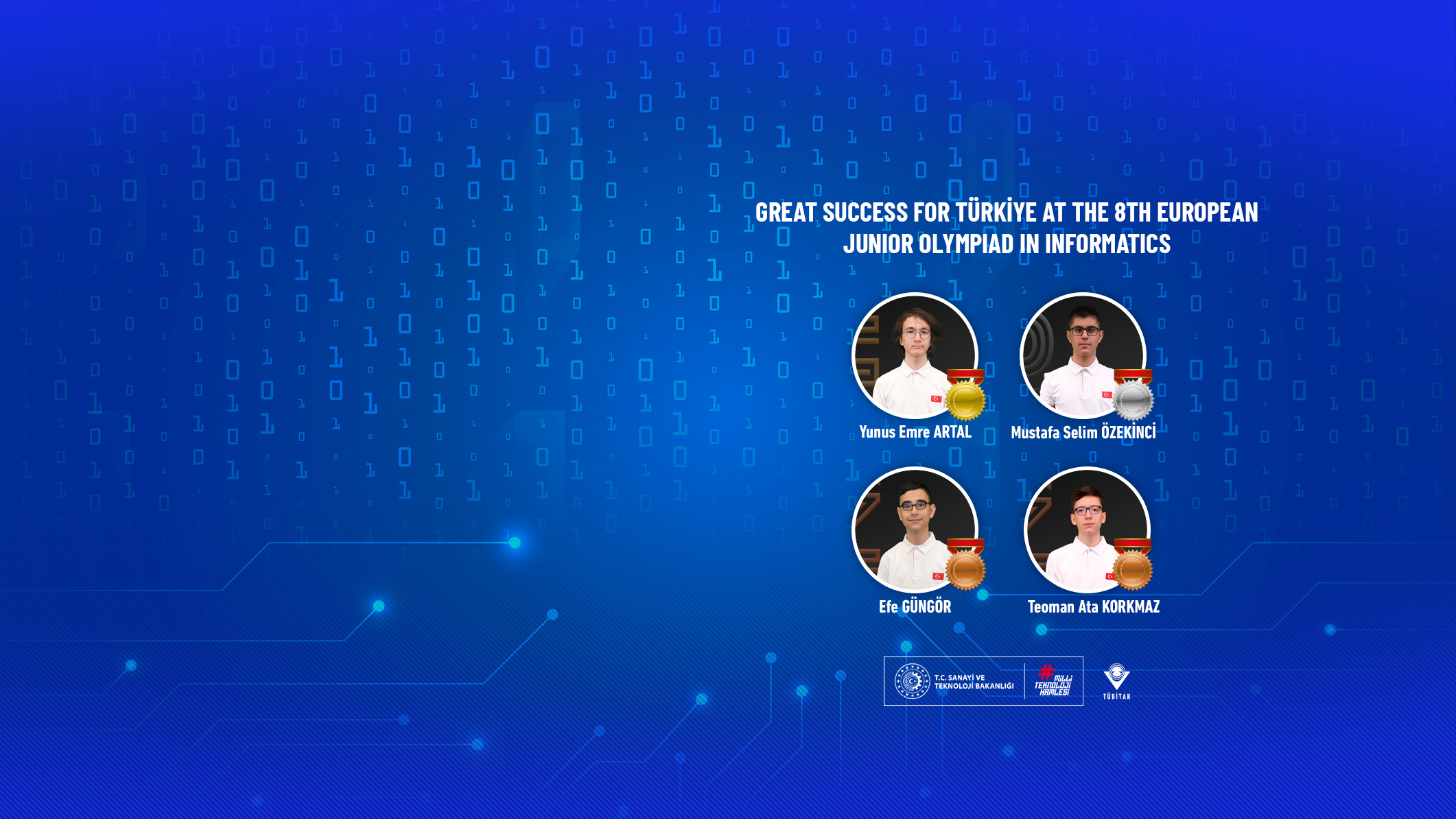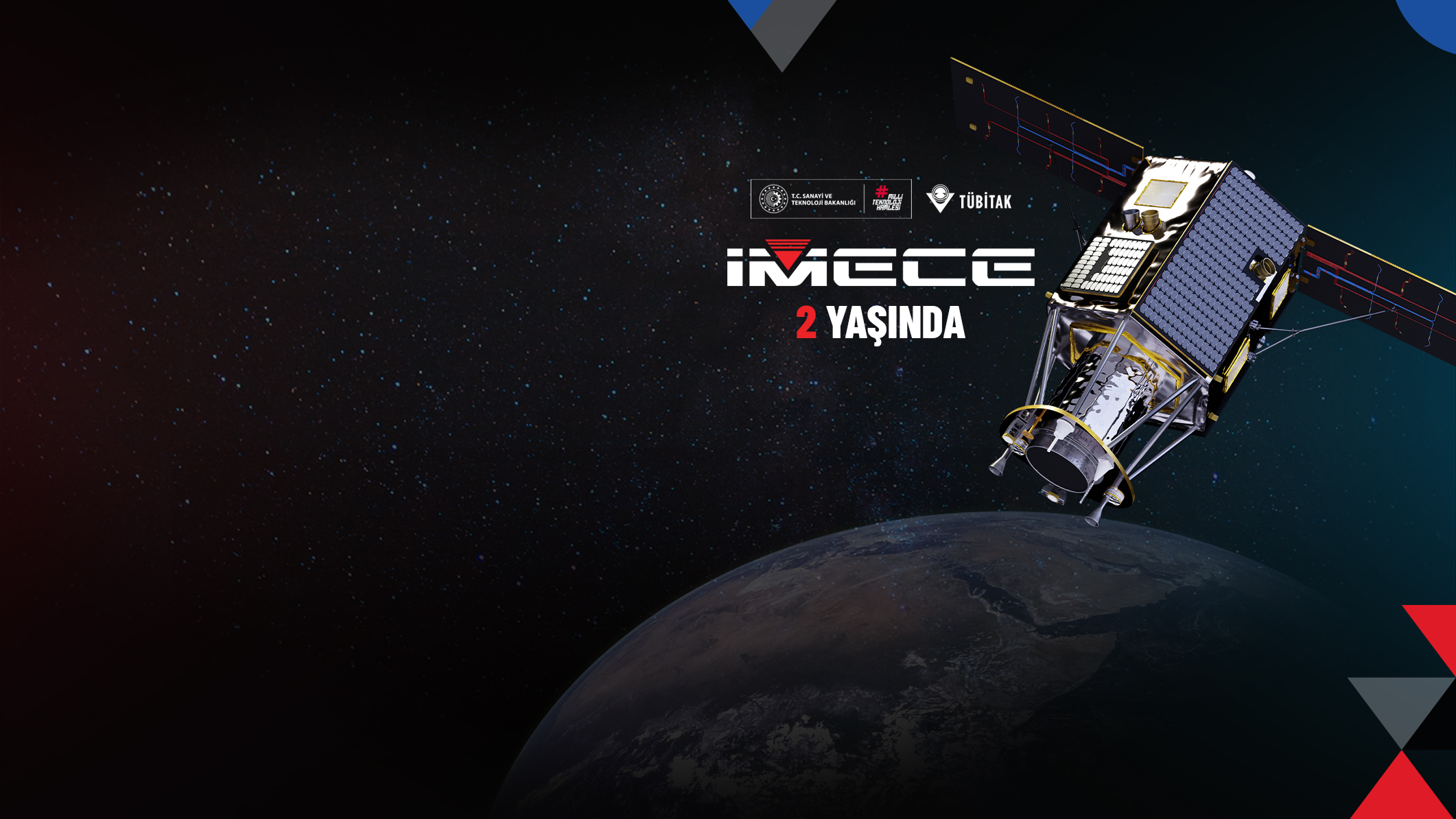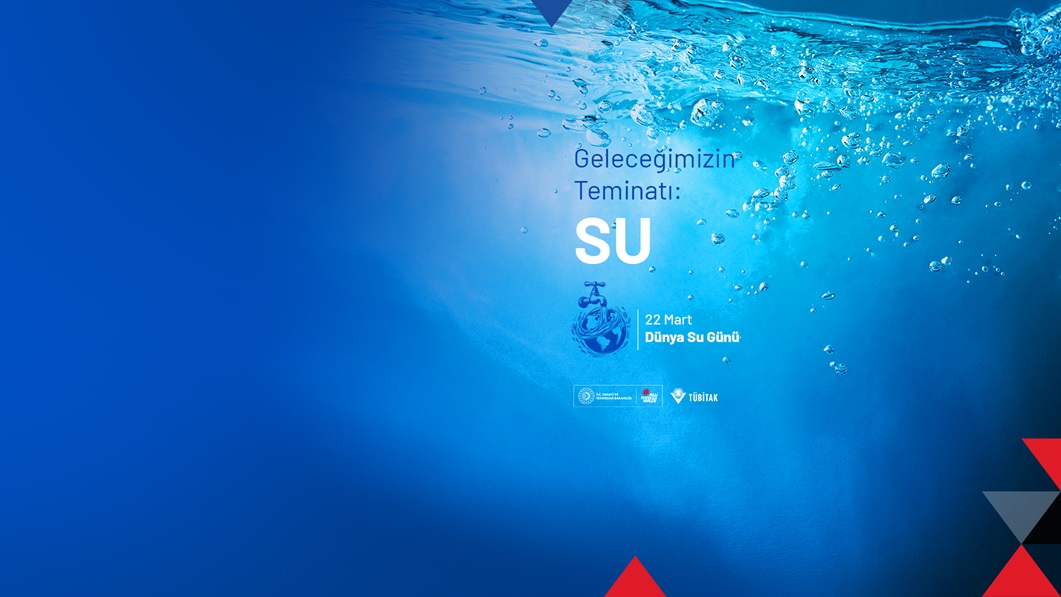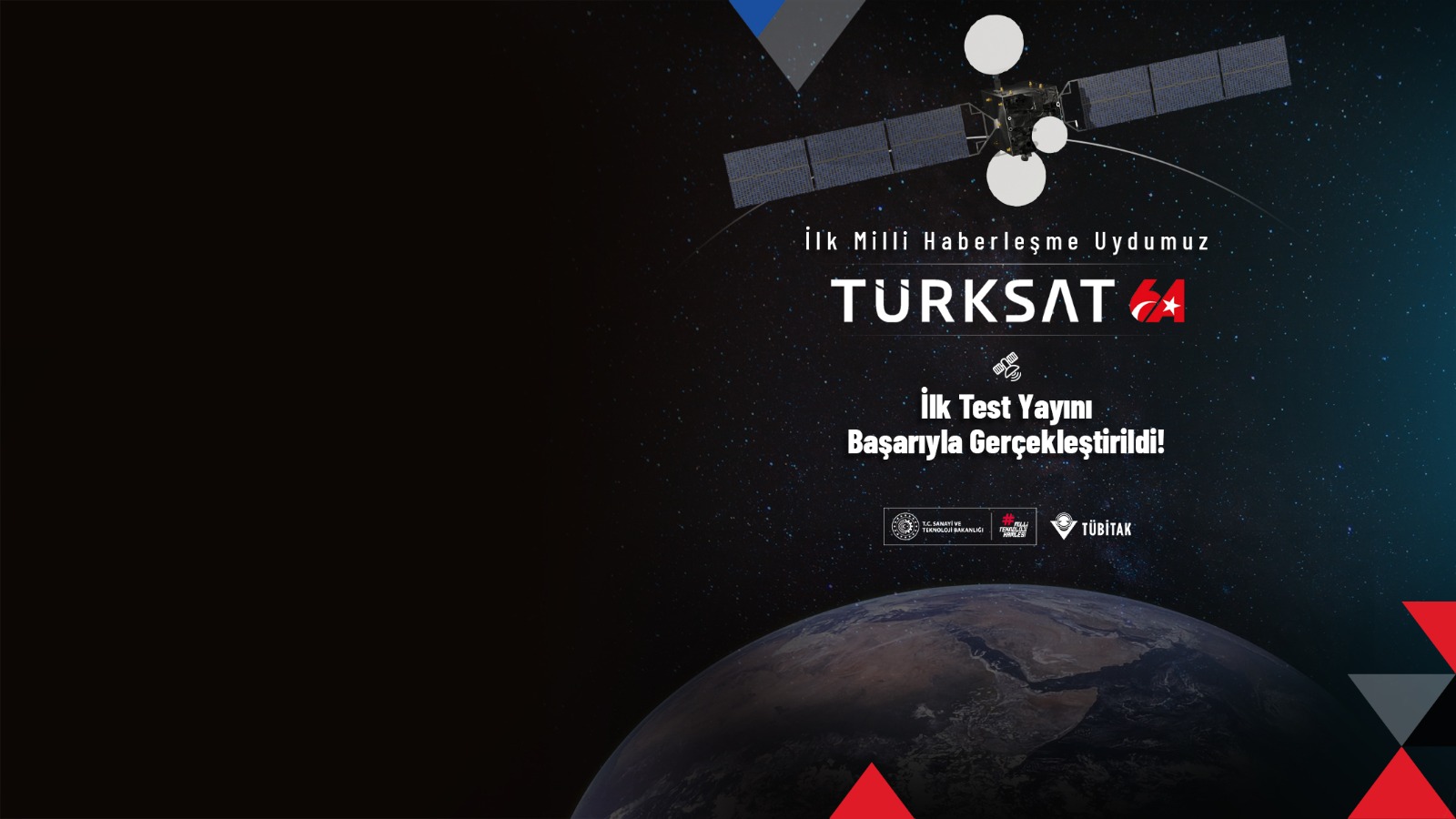Arama
Our national team participated in the 25th Asian Physics Olympiad representing Türkiye and achieved a great success by making our country proud.
In the Olympiad, which was held in Dahran, Saudi Arabia between May 4-12, 2025, 240 students from 30 countries competed and our students achieved a total of 8 degrees, including 1 silver, 5 bronze and 2 honorable mentions. With this result, Türkiye achieved the highest number of degrees in the history of the Asian Physics Olympics.
One of our students trained within the scope of the 2202 Science Olympiads Program carried out within TÜBİTAK:
Silver medal without Alp Slippers,
Oytun Er, Muhammed Doğan Önal, Şenol Tarhan, Halil İbrahim Yenitürk and İclal Asya Aksoy bronze medal,
Yusuf Salih Şahin and Yiğit Koca received honorable mentions.
We congratulate all our students who successfully represented our country; we would like to thank their families, teachers and all the academicians who took part in the trainings, especially our Olympic Committee Presidents, who contributed to this process.
Türkiye’yi temsilen 25. Asya Fizik Olimpiyatı’na katılan milli takımımız, ülkemize gurur yaşatarak büyük bir başarıya imza attı.
4-12 Mayıs 2025 tarihleri arasında Suudi Arabistan’ın Dahran şehrinde düzenlenen ve 30 ülkeden 240 öğrencinin yarıştığı olimpiyatta, öğrencilerimiz 1 gümüş, 5 bronz ve 2 mansiyon olmak üzere toplam 8 derece elde etti. Bu sonuçla Türkiye, Asya Fizik Olimpiyatları tarihinde en fazla derece kazandığı yılını yaşadı.
TÜBİTAK bünyesinde yürütülen 2202 Bilim Olimpiyatları Programı kapsamında yetiştirilen öğrencilerimizden:
Alp TERLİKSİZ gümüş madalya,
Oytun ER, Muhammed Doğan ÖNAL, Şenol TARHAN, Halil İbrahim YENİTÜRK ve İclal Asya AKSOY bronz madalya,
Yusuf Salih ŞAHİN ve Yiğit KOCA mansiyon ödülü kazandı.
Ülkemizi başarıyla temsil eden tüm öğrencilerimizi tebrik ediyor; bu süreçte emeği geçen ailelerine, öğretmenlerine, başta Olimpiyat Komitesi Başkanlarımız olmak üzere eğitimlerde görev alan tüm akademisyenlere teşekkür ediyoruz.
Bilim ve Teknolojide Avrupa İşbirliği Kuruluşu (European Cooperation in Science and Technology- COST Association) 1971 yılında kurulmuş olup; Avrupa çapında alanlarında uzman bilim insanlarını çalıştıkları alan özelinde COST Aksiyonu adı verilen uluslararası bilimsel ağlarda bir araya getirmeyi ve bu sayede ulusal araştırmalarını sürdüren bilim insanlarını uluslararası alana taşımayı amaçlayan bir kuruluştur. Türkiye COST’un kurucu üyeleri arasında yer almaktadır.
Araştırmacılara sadece ağ desteği vermesi ve bunu temel amacı olarak edinmesi açısından alanındaki en önemli yapı COST’tur. Bu mahiyette Türk araştırmacıların çalışıyor oldukları alanlardaki uluslararası uzman araştırmacılar ile bir araya gelmeleri ve Türkiye’ye ciddi getirileri olacak uluslararası projelere katılım sağlayacak konsorsiyumlara ulaşmaları açısından COST son derece önemli fırsatlar sunmaktadır. COST, özellikle Avrupa Birliği Çerçeve Programı projelerine katılım sağlanabilmesi adına gerekli uluslararası proje gruplarına en kısa yoldan erişim sağlamaktadır. Dolayısıyla ulusal alanda araştırmalarını sürdüren ancak uluslararası alana geçiş yapmak isteyen Türk araştırmacılar için en ideal program olma özelliğine sahiptir.
Özel sektör, kamu kurumları ve üniversitelerde tam zamanlı olarak çalışmakta olan tüm bilim insanlarının COST’tan yararlanabilmesi mümkündür. COST Aksiyonları kapsamında Yönetim Komitesi ve Çalışma Grubu toplantıları, çalıştaylar, bilimsel konferanslar, bilimsel kurslar, kısa süreli bilimsel ziyaretler ve aksiyonlar kapsamında yürütülen çalışmalar sonucu çıkan yayınlar için maddi destek sağlanmaktadır.
COST Kuruluşu resmi internet sitesi için tıklayınız.
COST 2024 Senelik Raporu için tıklayınız.
COST 2024 Senelik Türkiye Raporu için tıklayınız.
COST web sitesi Türkiye sayfası için tıklayınız.
Genç Araştırmacılar için COST, tanıtım videosu için tıklayınız.
COST Ayrntılı Tanıtım sunumu için tıklayınız.
COST is the longest-running European framework supporting trans-national cooperation among researchers, engineers and scholars across Europe. It is a unique means for researchers to jointly develop their own ideas and new initiatives across all fields in science and technology, including social sciences and humanities, through pan-European networking of nationally funded research activities. Based on a European intergovernmental framework for cooperation in science and technology, COST has been contributing - since its creation in 1971 - to closing the gap between science, policymakers and society throughout Europe and beyond. As a precursor of advanced multidisciplinary research, COST plays a very important role in building a European Research Area (ERA).
Please click to see COST web site.
Please click to see COST 2024 Annual Report.
Please click to see COST 2024 Türkiye Factsheet.
Please click for COST Türkiye web site.
COST Kuruluşu, ulusal kaynaklarla araştırmalarını sürdüren araştırmacıların Avrupa düzeyinde koordinasyonunu sağlamak ve Avrupa bilim insanlarının ağ faaliyetlerini desteklemek amacıyla kurulmuş olan bir organizasyondur. Açık adı, “Bilim ve Teknolojide Avrupa İşbirliği (European Cooperation in Science and Technology – COST Association)” olan COST, 1971 yılında kurulmuştur ve ülkemiz de kurucu ülkeler arasında yer almıştır.
Kuruluşa üye 41 ülke bulunmaktadır. Bu ülkeler şu şekildedir:
Almanya, Arnavutluk, Avusturya, Belçika, Bosna Hersek, Bulgaristan, Çek Cumhuriyeti, Danimarka, Ermenistan, Estonya, Finlandiya, Fransa, Güney Kıbrıs Rum Yönetimi, Gürcistan Hırvatistan, Hollanda, İngiltere, İrlanda, İspanya, İsveç, İsviçre, İtalya, İzlanda, Karadağ, Letonya, Litvanya, Lüksemburg, Macaristan, Makedonya, Malta, Moldova, Norveç, Polonya, Portekiz, Romanya, Sırbistan, Slovakya, Slovenya, Türkiye, Ukrayna ve Yunanistan. Ayrıca İsrail COST "İşbirliği Ortağı" statütüsünde olup tüm COST faaliyetlerinden İsrail'de görevli bilim insanları da yararlanabilmektedir.
COST’un misyonu, Avrupalı araştırmacılar arasında etkileşim ve işbirliğini destekleyerek; Avrupa’yı barışçıl amaçlar için bilimsel ve teknik araştırmada güçlendirmektir.
COST, ulusal alanda araştırmalarını sürdüren, alanında uzman araştırmacıları çalıştıkları alanlardaki uzman bilim insanlarıyla Avrupa merkezli uluslararası tematik ağlarda bir araya getirmeyi hedeflemektedir. 4 yıl boyunca faaliyetlerini sürdüren COST Aksiyonlarına bu süreç içerisinde katılım mümkündür.
COST mekanizmasının temel unsurları şu şekildedir:
Aksiyonlar kapsamında araştırma desteği verilmezken sadece ağ desteği sağlanır.
Her bir COST Aksiyonu'nda 1 adet Yönetim Komitesi (Management Committee-MC) ve farklı sayılarda Çalışma Grupları (Working Group) yer almaktadır. Yönetim Komitesinde o Aksiyon ile ilgili idari konularda kararlar alınmaktadır. Bir Aksiyonun Yönetim Komitesine her COST üyesi ülkeden en fazla 2 üye yer almaktadır. Yönetim Komitesi üyesi atamaları ülke ulusal koordinatörleri tarafından yapılmaktadır. Bu görev Türkiye'de TÜBİTAK tarafından yürütülmektedir. Çalışma Grupları ise Aksiyonun alt bilimsel konularındaki tematik gruplardır ve Çalışma Grubu üyelerinin atanmaları doğrudan Aksiyon Yönetimi tarafından sağlanmaktadır. Çalışma Grubu üyeleri için bir sayı sınırlaması bulunmayıp kişinin uzmanlığı ve Aksiyonun mevcut bütçesi gibi konular göz önünde bulundurularak yeni üyeler atanmaktadır. Hem Çalışma Grubu hem de Yönetim Komitesi üyelerinin toplantı katılım giderleri ilgili COST Aksiyonu tarafından karşılanmaktadır. (Aksiyon Yönetim Komitesi ve Çalışma Grubu üyelikleri hakkında ayrıntılı bilgi için "Yönetim Komitesi ve Çalışma Grubu Üyeliği" kısmını inceleyiniz.)
COST üyesi ülke vatandaşları yeni bir COST Aksiyonu önerebilir. (Ayrıntılı bilgi için "Yeni COST Aksiyonu Önerme" kısmını inceleyiniz.
Türkiye stands as one of the founding members of the Association which has currently 41 member countries.
COST member countries:
Albania, Armenia Austria, Belgium, Bosnia and Herzegovina, Bulgaria, Croatia, Czech Republic, Denmark, Estonia, Finland, France, Germany, Greece, Greek Administration of Southern Cyprus, Georgia, Hungary, Iceland, Ireland, Italy, Latvia, Lithuania, Luxembourg, Malta, the Republic of Moldova, Montenegro, The Netherlands, The Republic of North Macedonia, Norway, Poland, Portugal, Romania, Serbia, Slovakia, Slovenia, Spain, Sweden, Switzerland, Turkey, Ukraine and the United Kingdom.
COST anticipates and complements the activities of the EU Framework Programmes, constituting a “bridge” towards the scientific communities of COST Inclusiveness Target Countries. It also increases the mobility of researchers across Europe and fosters the establishment of scientific excellence through including a renewed evaluation and selection procedure aiming at identifying breakthrough ideas and favoring interdisciplinary and multidisciplinary projects.
COST is a short-cut for Turkish researchers to reach European research groups in a high variety of scientific fields. The platform can be considered as the step between the national level and Framework Programs.

